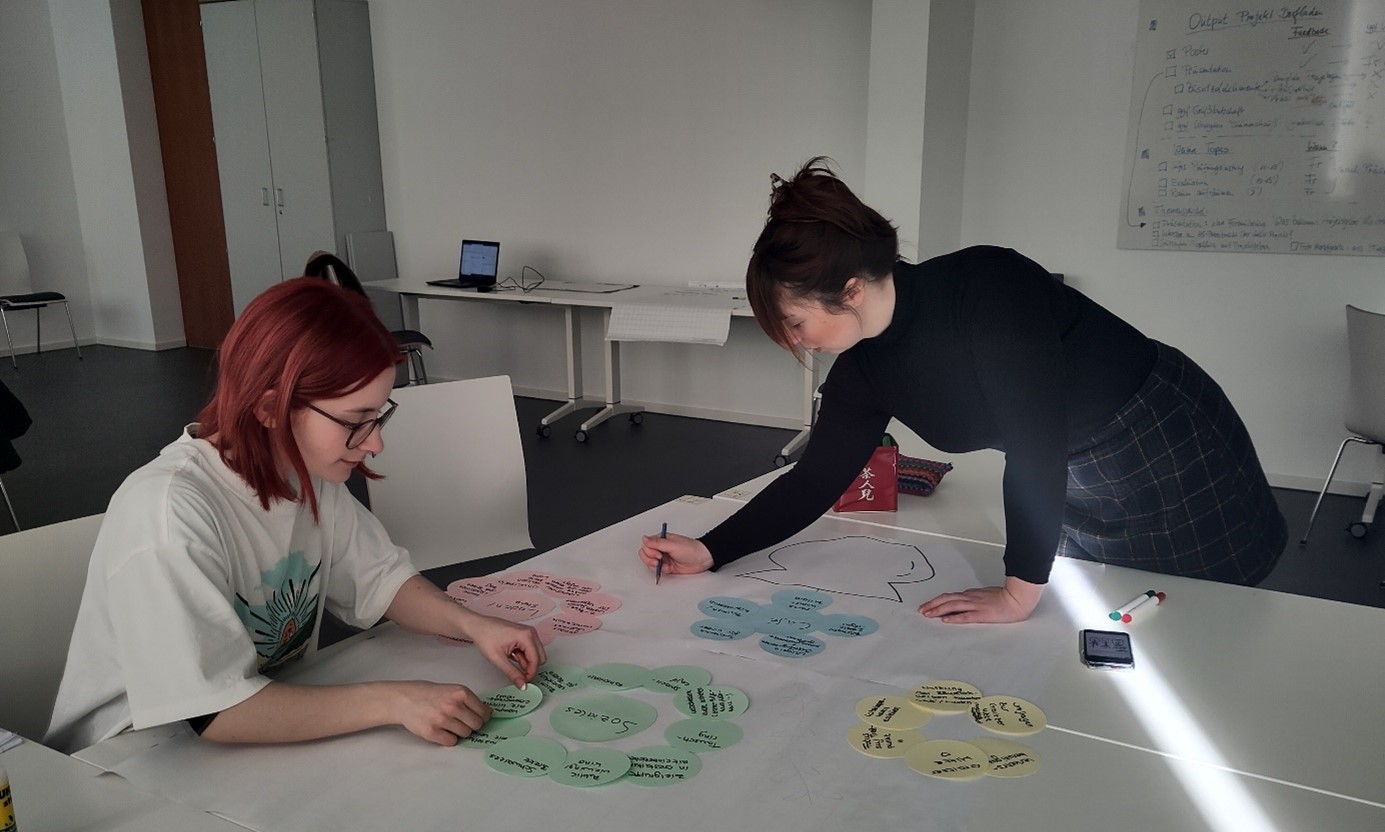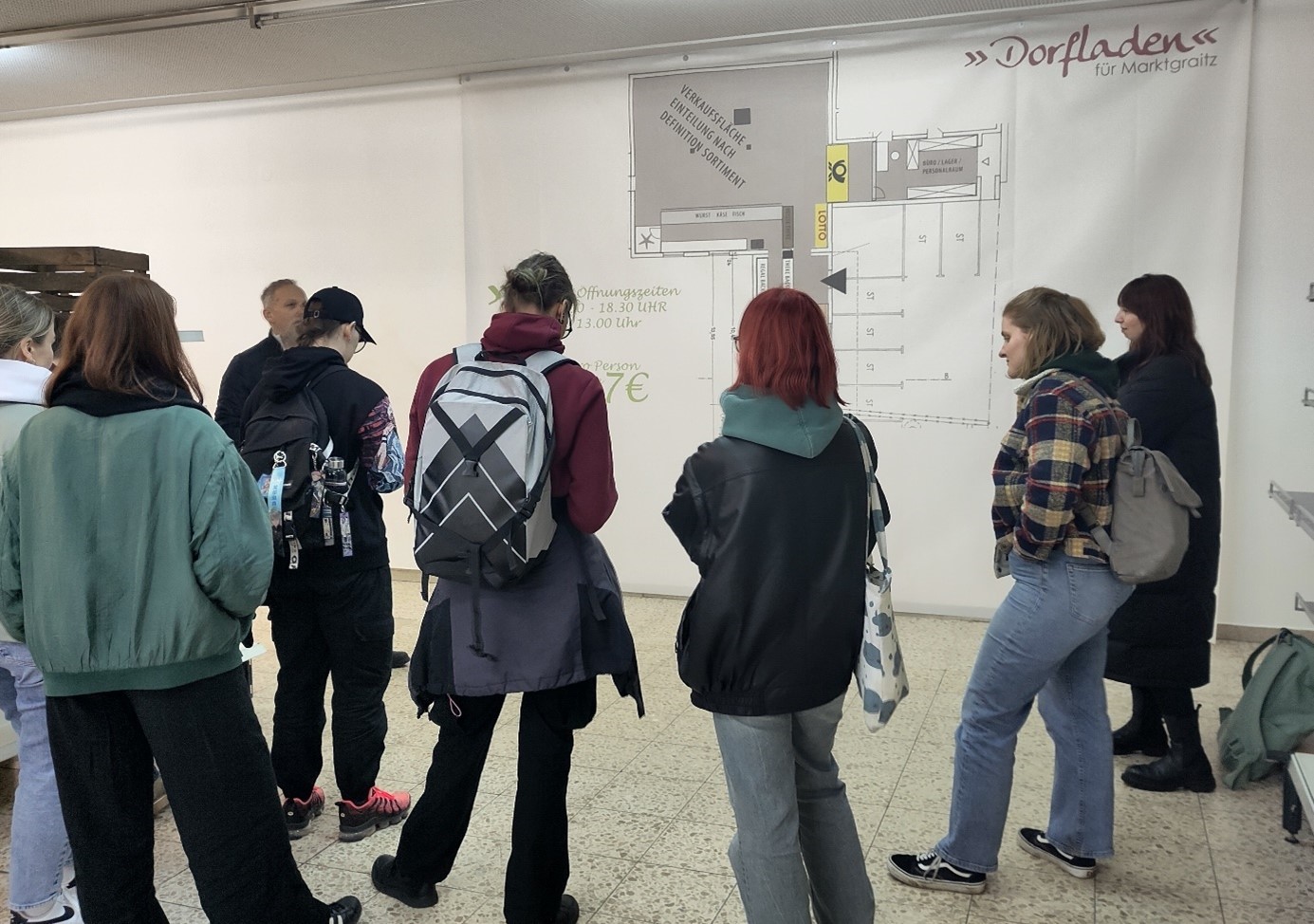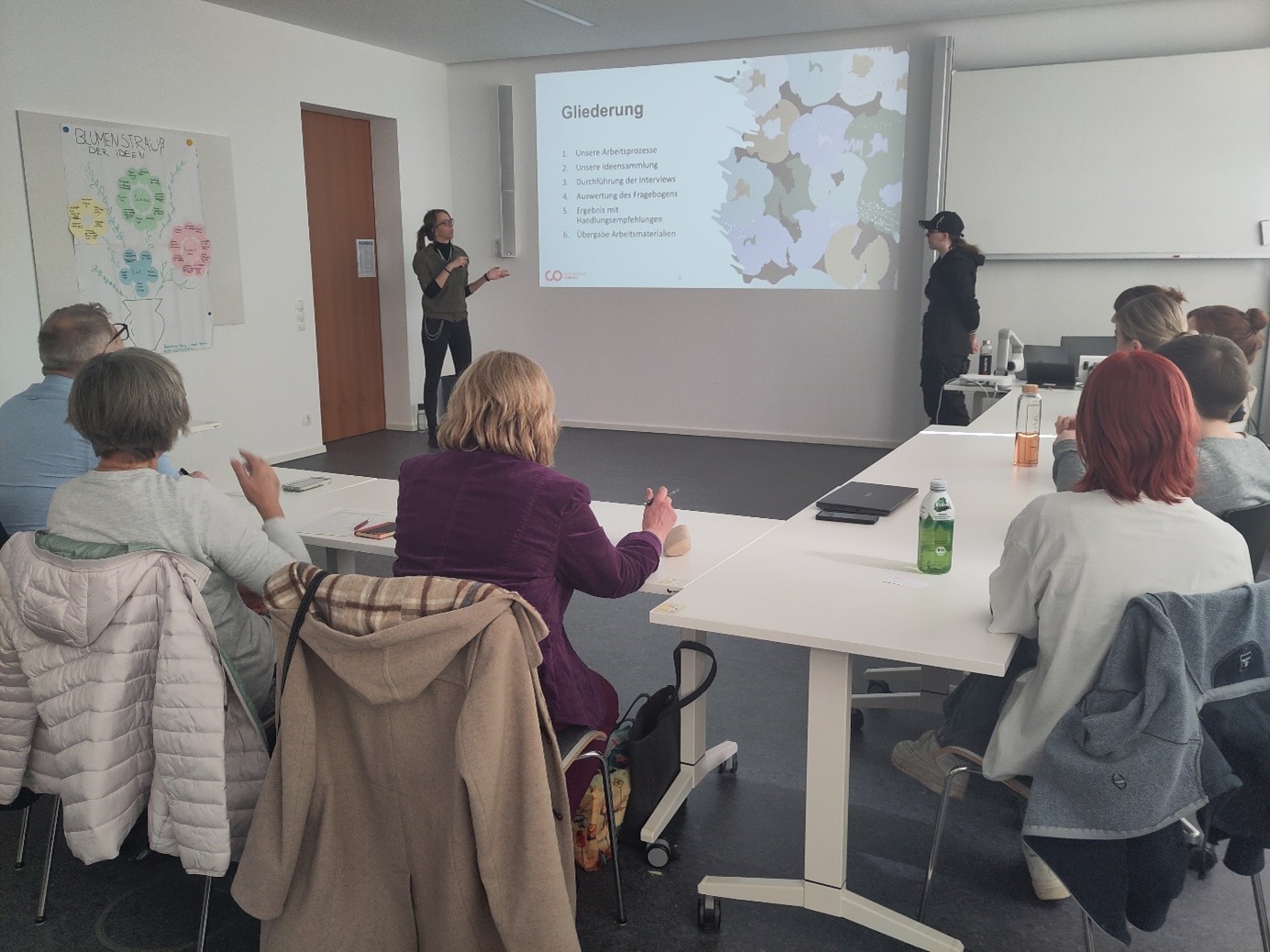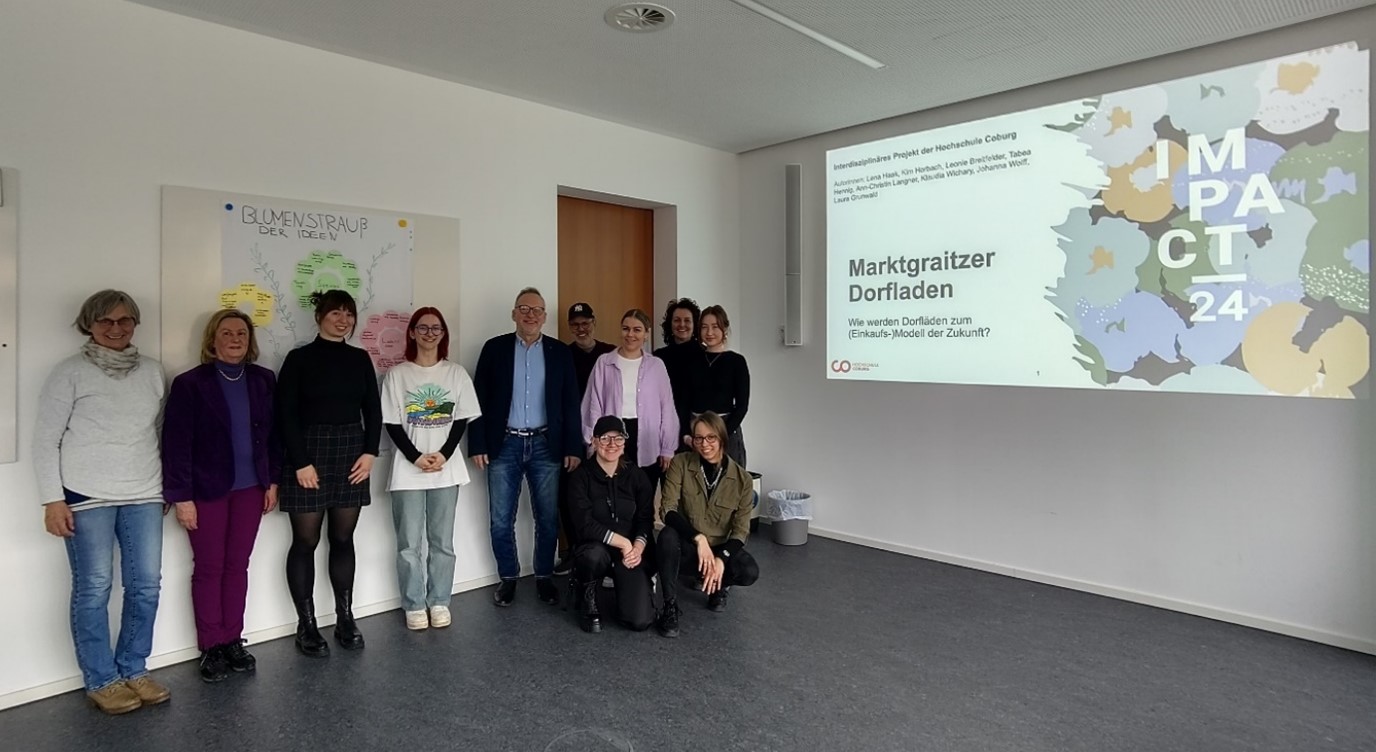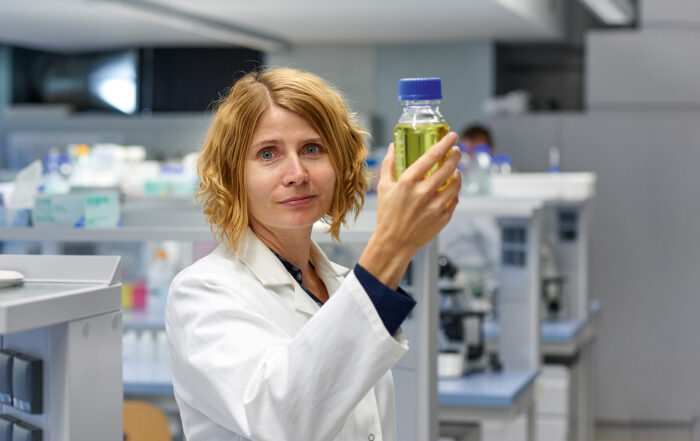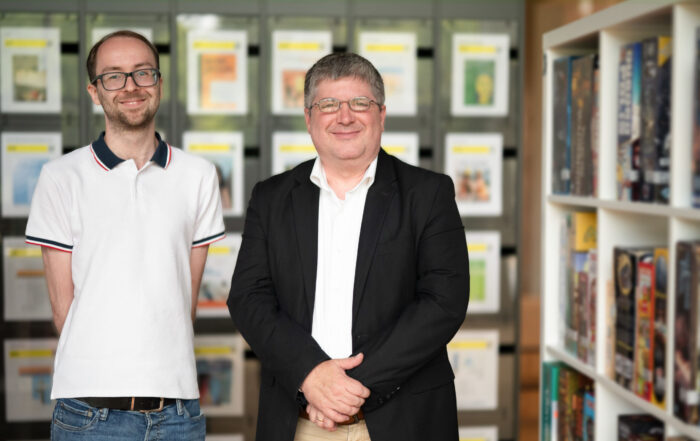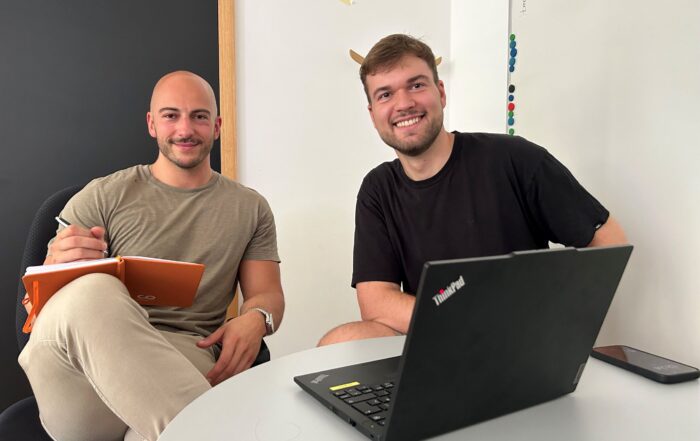28. March '24
How can village stores be turned into a (shopping) model of the future?
The Bürgergemeinschaft Dorfladen Marktgraitz submitted this question as a project proposal for the Impact’24 innovation festival at Coburg University of Applied Sciences.
The topic was selected, worked on and presented by students with the support of learning coaches during the project week.
And it has an impact on the future.
At this year’s “IMPACT’24 – Innovation and Learning Festival” at Coburg University of Applied Sciences, students once again had the opportunity to apply and deepen their specialist and methodological knowledge in practice.
They put their creative minds to work to develop ideas for the region. One of the projects came from Marktgraitz: in the vacant retail space of a former bakery in the center of the village, the local community wants a village store to ensure local supplies and make village life more attractive.
After a forced break due to coronavirus, the project is set to gain momentum again with the ideas of the Coburg students.
A team of students and two coaches
A project team of social work and civil engineering students tackled this task.
They were accompanied by two learning coaches: Janine Koch is a research assistant at Coburg University of Applied Sciences in the Entrepreneurship Track for Regional Impact on Global Challenges ERIC project, comes from a practical background and, together with her project colleagues, is increasingly focusing on practical teaching and learning formats in cooperation with external partners.
Bernd Kleim is one of the senior experts, specialists who are already retired or about to retire and support the university on the basis of their professional experience and knowledge.
Koch reports that an excursion to Marktgraitz was on the agenda at the beginning in order to gain an impression of the local conditions and to be able to interview the project sponsors.
“This also included a visit to the village store in the neighboring municipality of Marktzeuln, including an exchange of experiences with the managing director there. The next three days were then used intensively to reorganize the team again and again, to feel our way forward methodically step by step and to allow content to mature,” says Koch.
Kleim adds: “Following the design thinking concept, our group first collected their own ideas and evaluated them as a team.”
The result was a colorful bouquet of ideas.
“In the next step, these were subjected to an initial practical test.”
Identification with the topic
“With the help of a jointly prepared interview guide, our students spent a day asking local residents about their opinions and ideas,” says Kleim. Initial concerns such as “Are our ideas perhaps unrealistic?” or “Do I have the confidence to hold a conversation with strangers?” were gradually dispelled. “The group’s enthusiasm was increasingly noticeable. We observed how the students’ identification with the topic grew with each partial success and how our group increasingly gained confidence in their own abilities and in the potential of the team to present and represent their ideas confidently on the last day.” One student from the team reported afterwards: “Village stores and regionality interest me and I was able to gain valuable insights.” She could “definitely imagine this as a field of work.”
The future of the village store
The project initiators were also very impressed.
Christine Seemüller-Kohles from the Bürgergemeinschaft Dorfladen Marktgraitz explained: “The way the students conducted the interviews was highly praised.”
The interviews were perceived as “very pleasant”.
“The interviewees enjoyed it and see it as a good basis for the further development of the village store.”
And what was the outcome?
After the interviews, the students agreed that village stores are only sustainable as a business model if concepts of social exchange are at the forefront.
The focus is therefore on innovative ideas for the village store as a social meeting place for young and old.
In doing so, the students focused on the transformation of society towards an intergenerational, ecological and social economy and way of life in line with the 17 UN Sustainable Development Goals.
The focus was particularly on the goal of “sustainable design of cities and communities”.
This was well received locally in Marktgraitz.
The recommendations for further action have already been discussed intensively.
First Mayor Jochen Partheymüller explained that he would be delighted if the students continued to support the process and immediately made a concrete offer.
“We would be happy to invite you to present the presentation to the municipal council.”
Podcast
How technical and social innovations can go hand in hand was recently the subject of a panel discussion with start-up teams – listen to the podcast: “Technical and social innovations – (not) a contradiction?”


